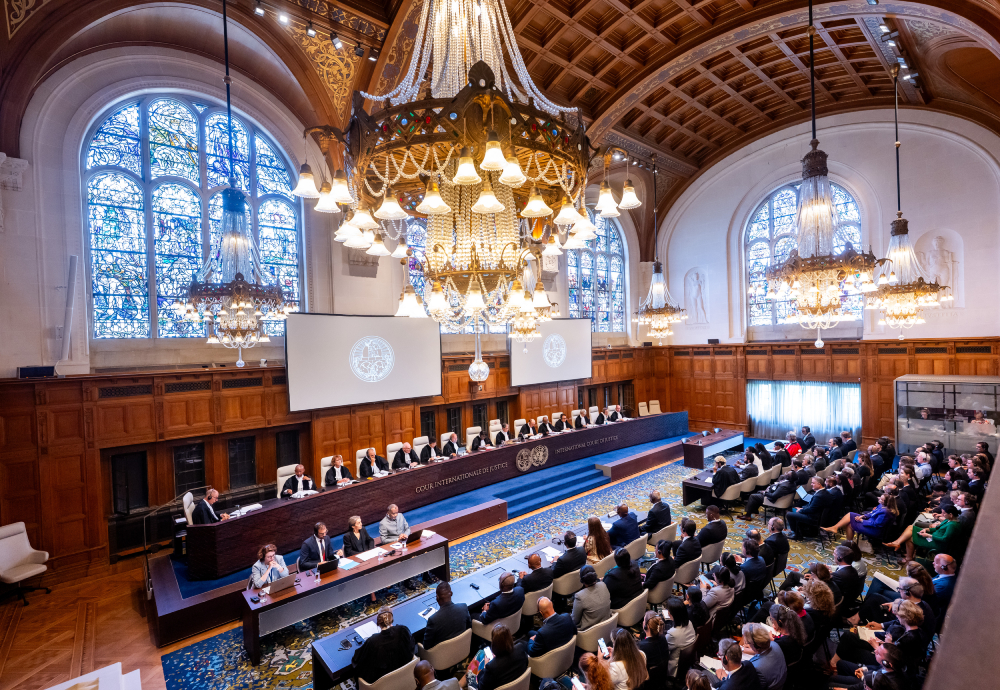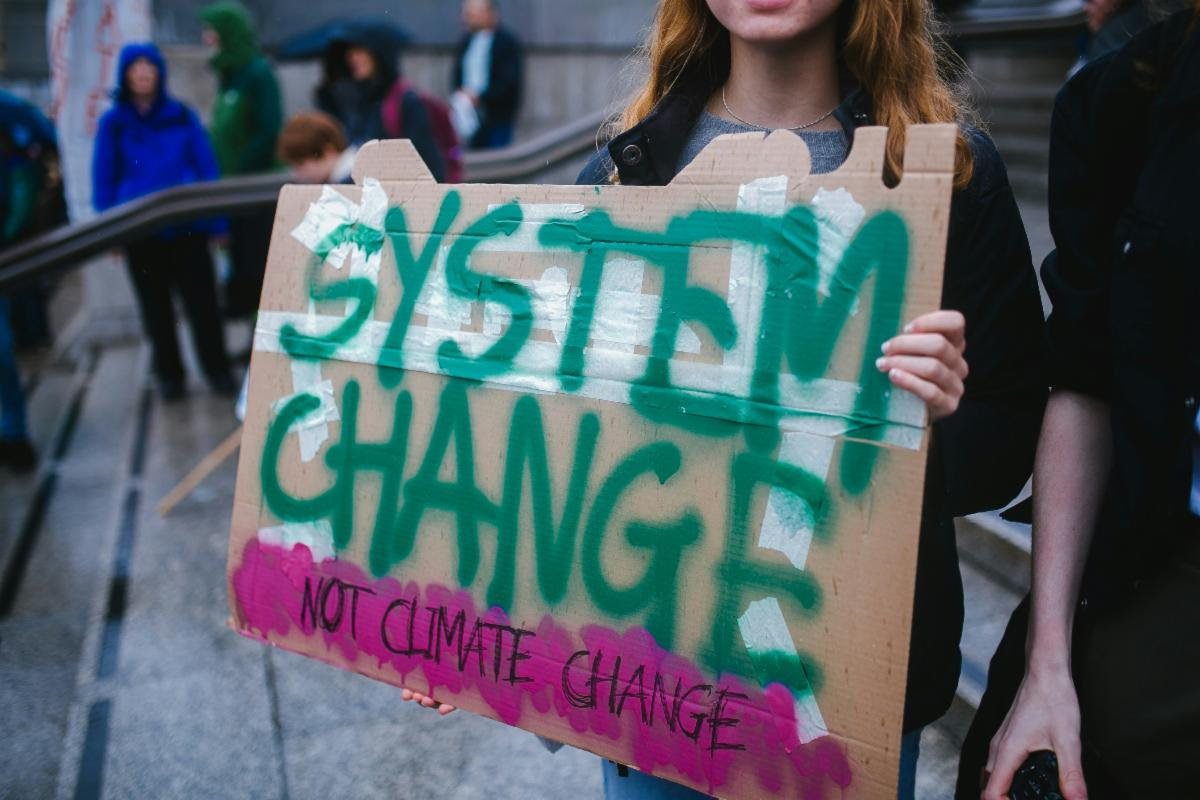Décisions historiques de la Cour internationale de justice sur le climat

La Cour internationale de justice (CIJ) et la Cour interaméricaine des droits de l'homme (CIADH) ont récemment statué que les États doivent redoubler d'efforts pour lutter contre le changement climatique. La CIADH a affirmé le droit humain à un climat sain. La CIJ a affirmé que tous les États ont l'obligation légale de réduire leurs émissions de gaz à effet de serre. Ces avis historiques fournissent des interprétations faisant autorité du droit international existant, soulignant les obligations juridiques des États face à la crise climatique et à ses conséquences dévastatrices sur l'environnement et les droits humains, et offrant des orientations pour les actions juridiques et la responsabilisation futures.
Les deux tribunaux ont exprimé leur profonde préoccupation face à l'urgence climatique. Ils ont déclaré que les États ont des obligations légales, notamment l'établissement de cadres climatiques nationaux, la définition d'objectifs d'atténuation et de plans d'adaptation, ainsi que la mise en place de mécanismes d'application efficaces.
Points saillants de l'avis de la Cour interaméricaine des droits de l'homme
Suite à un nombre sans précédent de contributions de la société civile, d'universitaires, d'États et d'organisations internationales, la Cour interaméricaine des droits de l'homme a rendu son avis consultatif sur le changement climatique et les droits de l'homme. L'urgence climatique se définit, selon la Cour, par l'urgence d'une action efficace, la gravité de ses impacts et la complexité de la réponse requise. Par conséquent, la Cour a souligné que les États doivent s'abstenir de tout comportement qui retarde, compromet ou compromet les résultats des mesures nécessaires pour protéger les droits de l'homme contre les dommages liés au climat.
Interprétant le principe de prévention, la Cour a conclu que les États sont tenus d’exercer diligence raisonnable renforcée Face au changement climatique, les États ont notamment pour devoir d'adopter une législation nationale visant à guider les acteurs étatiques et privés, en s'appuyant sur les meilleures données scientifiques disponibles ainsi que sur les systèmes de connaissances traditionnels, locaux et autochtones.
Le tribunal a fait référence à la interdiction impérative contre les dommages massifs et irréversibles à l'environnement. Du droit à un environnement sain est issu le droit humain à un climat sain, imposant des obligations spécifiques aux États. Dépassant une vision purement centrée sur l'humain, la Cour interaméricaine des droits de l'homme a mis en avant la nature et ses composantes comme titulaires de droits, contribuant ainsi à un modèle de développement respectueux des limites planétaires (les limites naturelles de la Terre) et préservant suffisamment de ressources naturelles vitales pour les générations actuelles et futures.
La Cour a abordé un large éventail de droits substantiels et procéduraux menacés dans le contexte de l’urgence climatique, notamment le droit à la vie, à l’intégrité personnelle, à la santé, à la propriété privée, à un logement adéquat, à la liberté de circulation et de résidence, à l’eau, à l’alimentation, au travail, à la sécurité sociale, à l’éducation, à la démocratie, à la science, à l’accès à l’information, à la participation publique, à l’accès à la justice et au droit de défendre les droits de l’homme.
« L'avis consultatif rendu par la Cour interaméricaine des droits de l'homme renforce la protection des défenseurs de l'environnement », déclare Luciano Coco Pastrana, avocat de l'équipe des défenseurs de l'environnement d'ELAW. « La Cour affirme le caractère autonome du droit de défendre les droits humains et reconnaît les défenseurs de l'environnement comme des titulaires de droits qui, en raison de leur travail, ont droit à des protections spécifiques. S'appuyant sur l'Accord d'Escazú, l'avis renforce l'obligation des États de garantir la participation, la transparence et la protection, faisant d'Escazú une source d'interprétation essentielle dans la jurisprudence de la Cour. Cet avis positionne la défense de l'environnement non seulement comme une question d'intérêt public, mais aussi comme un pilier fondamental de la gouvernance démocratique et climatique dans les Amériques. »
Points saillants de l'avis de la Cour internationale de Justice
La CIJ a donné son avis sur deux questions qui lui ont été soumises par l’Assemblée générale des Nations Unies :
- Quelles sont les obligations juridiques des États face aux changements climatiques causés par les émissions anthropiques de gaz à effet de serre ?
- Quelles sont les conséquences juridiques du non-respect par un État de ces obligations juridiques ?
La Cour a examiné les observations écrites et orales de nombreux États, organisations internationales et organisations de la société civile avant de rendre son avis consultatif le 24 juillet 2025. Cet avis a affirmé à l'unanimité que les États ont l'obligation juridique, en vertu du droit des traités relatifs aux changements climatiques, de prendre des mesures collectives pour réduire les émissions de gaz à effet de serre afin de respecter la norme de 1,5 °C d'augmentation de la température. Ce faisant, les États doivent prendre des mesures adéquates qui respectent le principe de responsabilité commune mais différenciée et le principe de précaution.
La Cour a également estimé que les États ont l'obligation légale de soumettre régulièrement les contributions déterminées au niveau national requises dans le cadre de la convention des Nations Unies sur le climat, qui devraient être progressives – ce qui signifie des efforts et des mesures accrus pour atteindre la norme de 1,5 °C. La Cour a jugé que les États ont l'obligation légale de coopérer pour atteindre la limitation de la température à 1,5 °C. En outre, la Cour, après avoir examiné le droit international coutumier, a estimé que les États sont juridiquement tenus de prévenir tout dommage significatif à l'environnement et au système climatique, ainsi que de veiller à ce que leurs actions et omissions ne causent pas de préjudice à d'autres États par leurs émissions de gaz à effet de serre.
En abordant la deuxième question des conséquences juridiques du non-respect, la Cour a déclaré qu'un État qui viole l'une de ses obligations climatiques est internationalement responsable d'un fait illicite, ce qui implique le devoir de cesser les actions ou omissions illicites, de garantir qu'ils ne répètent pas les actions et de fournir une réparation complète aux États lésés.

Aperçu
Ces avis illustrent l'interdépendance des différentes branches du droit international, les tribunaux ayant précisé les obligations existantes en vertu des traités relatifs aux droits de l'homme, des conventions environnementales, du droit coutumier et des principes du droit international. Tous ces éléments éclairent et renforcent les obligations climatiques des États.
« Ces avis consultatifs façonneront sans aucun doute le paysage juridique mondial pour l'action climatique future », déclare Letícia Aleixo, avocate chez ELAW. « Ils serviront de références essentielles pour les tribunaux et les décideurs politiques nationaux, et ouvriront la voie à la société civile pour exiger la responsabilité des gouvernements et des entreprises dans la lutte contre le changement climatique. »
ELAW collabore avec ses partenaires de diverses manières pour protéger le climat, notamment :
- Dépôt de plaintes pour maintenir les combustibles fossiles dans le sol ;
- Fermeture des centrales électriques polluantes qui ne répondent pas aux normes légales d’exploitation ; et
- Améliorer les politiques pour garantir la prise en compte des coûts globaux de l’énergie sale lors de l’autorisation de nouveaux projets, afin d’aider les pays à faire place aux énergies renouvelables.
Il nous reste beaucoup de travail à accomplir pour décortiquer ces opinions et élaborer collectivement des stratégies afin que ces interprétations marquantes du droit international se traduisent par des changements concrets pour protéger le climat et réparer les dommages causés aux communautés, en particulier celles qui ont le moins contribué au problème et qui en subissent les conséquences les plus dévastatrices. ELAW offrira des espaces d'échange de stratégies à nos partenaires pour approfondir ces décisions.
Nous sommes impatients d’intensifier nos efforts pour aider nos partenaires à tirer parti de l’autorité et de l’influence de ces deux avis consultatifs afin de renforcer leurs arguments devant les tribunaux du monde entier pour demander des comptes aux gouvernements et aux entreprises et mettre en œuvre des politiques efficaces de protection du climat.
Sincèrement,

Dr Lalanath de Silva
Directeur exécutif
Alliance mondiale du droit de l'environnement
Lectures complémentaires :
Avis consultatif de la Cour interaméricaine des droits de l'homme en anglais
Site Web des avis consultatifs de la Cour interaméricaine des droits de l'homme
Avis consultatif de la Cour interaméricaine des droits de l'homme en espagnol

